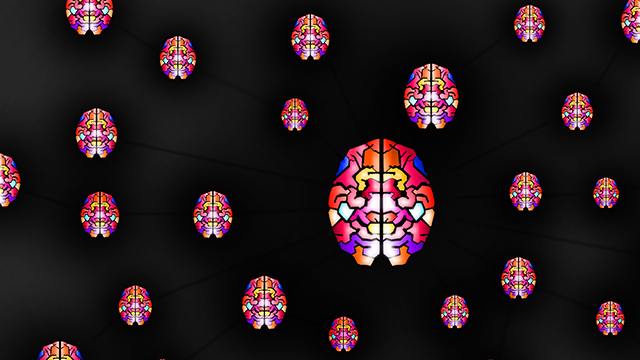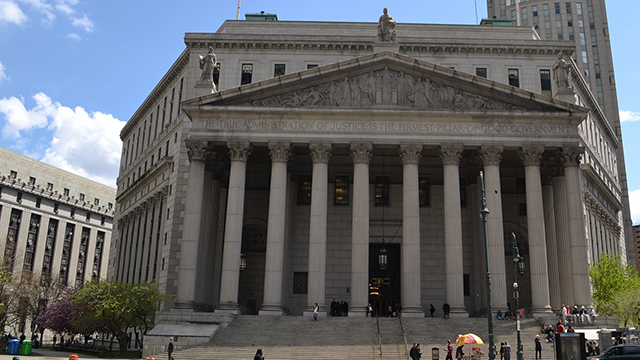LSI’s Blockchain Speaker Series Kicks Off This Month
The Center for Law, Science & Innovation is excited to host a series of speakers on blockchain and the law this spring at the Sandra Day O’Connor College of Law. The first of four speaker events, Blockchain Basics, will be held on Wednesday, January 17. The event, moderated by Faculty Director Gary Marchant, will explain the basics of […]
Marchant on the Year in Artificial Intelligence

Professor and Center Faculty Director Gary Marchant recently spoke with Quartz about the explosion of activity in artificial intelligence (AI): This year the world woke up to the society-shifting power of artificial intelligence. Marchant teaches courses like Artificial Intelligence: Law, Ethics & Policy at the Sandra Day O’Connor College of Law and is co-chairing the […]
A New Model for Governance of Emerging Technologies
Faculty Director Gary Marchant and Faculty Fellow Yvonne Stevens have published a law review article that proposes a new model for governing emerging technologies that is based on the concept of resilience. Current efforts to govern emerging technologies like synthetic biology, artificial intelligence, and nanotechnology involve a mix of ex ante strategies such as risk […]
Marchant on Regulating Gene Editing in Plants and Animals
Faculty Director Gary Marchant spoke at the 10th World Conference of Science Journalists in San Francisco on October 26th. He presented as part of a Symposium On New Genetic Technologies: Ethical Debates And Global Science Policy organized by The Hastings Center. Marchant discussed the regulatory challenges and opportunities with respect to editing the genes of […]
Marchant to Speak at Law + Innovation

The ABA Section of Litigation and its sponsor Navigant Consulting are holding their annual Law + Innovation event on December 11, 2017. This year’s event will focus on artificial intelligence (AI) and its impact on the practice of law. The event will bring together industry-leading resources in the legal, disputes, litigation, and AI communities in order […]
Marchant Talks Genetically Engineered Food

Center Faculty Director Gary Marchant gave a presentation on Genetic Modification Labeling Laws to the North Carolina Biotechnology Center’s 2017 Biotech Roundtable: Gene Editing in Ag Biotech held in Research Triangle Park, N.C. on October 24, 2017. In his talk, Marchant reviewed the historic arguments for and against mandatory labeling of genetically engineered foods. He summarized […]
Marchant Talks Emerging Tech with Appellate Judges

Center Faculty Director Gary Marchant was invited to give a 90-minute presentation to the annual conference of the Council of Chief Judges of State Courts of Appeal in Lexington, Kentucky on October 19. Marchant’s presentation on Disruptive Technologies and the Challenges of Being a Judge in a Rapidly Changing World focused on how judges must take a dynamic […]
Call for Papers: AI, Ethics & Society
The Association for the Advancement of Artificial Intelligence (AAAI) and the Association for Computing Machinery (ACM), two of the largest professional associations in the field of artificial intelligence, have announced a new joint conference on AI, Ethics and Society. The first annual conference will be held in New Orleans on Feb. 2-3, 2018. The organizers […]
Marchant Co-authors Commentary on Human Gene Editing
Center Faculty Director Gary Marchant co-authored a commentary on the promise of CRISPR gene editing technology and the need for international collaboration to enable further research. Human Embryo Editing: Opportunities and Importance of Transnational Cooperation (free download available) was published in the latest issue of Cell Stem Cell. The first reported use of CRISPR on human stem […]
Marchant Talks New Tech Challenges with California Judges

Center Faculty Director Gary Marchant recently spoke to the California Judges Association Annual Conference in San Francisco. Marchant’s talk, New Technology Intersects with the Old and New Law, addressed the challenges for judges presented by new technologies and scientific evidence. Today, courts must handle new types of technical, digital, genetic, and neuroscientific evidence. Even though […]